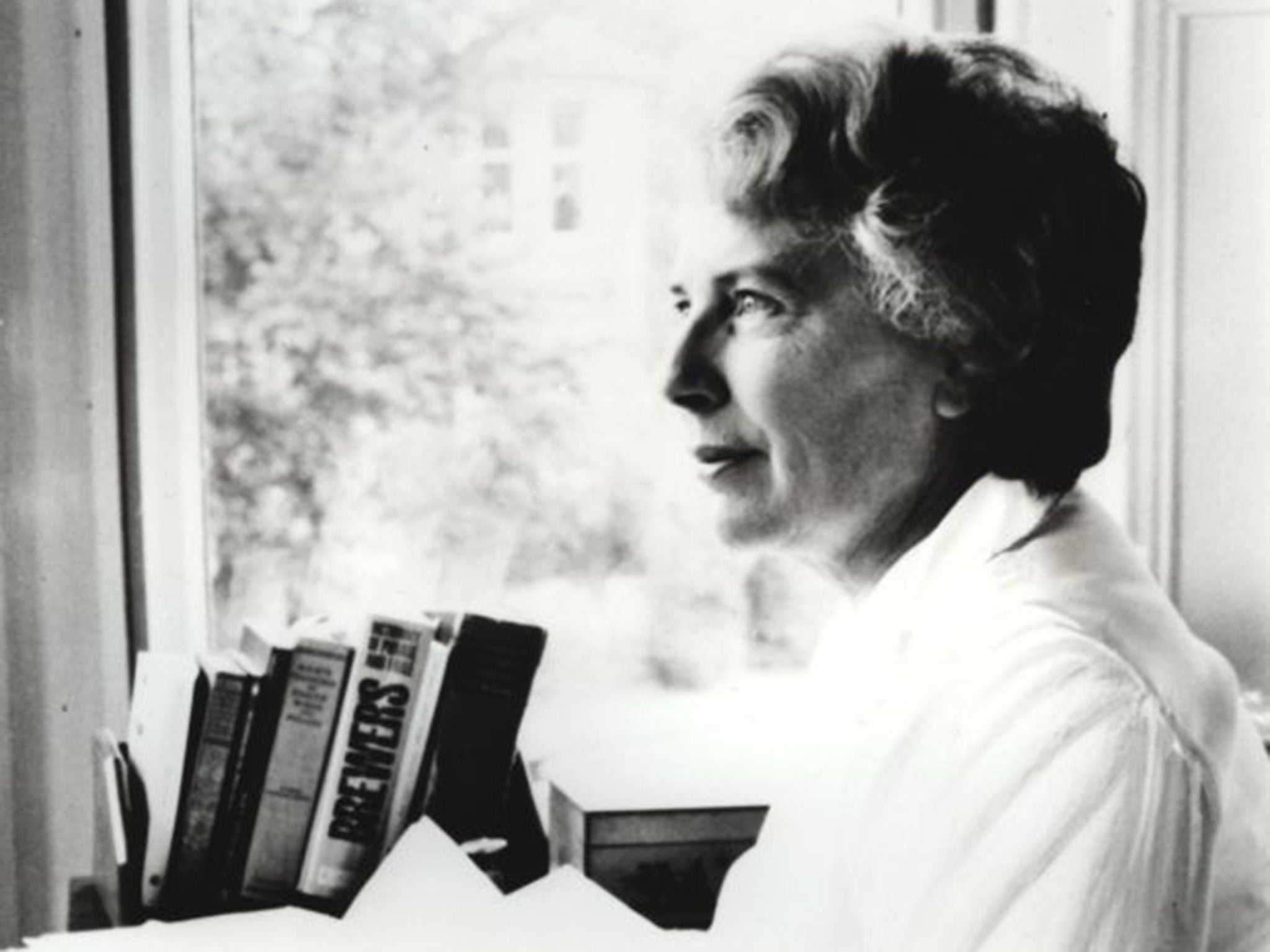Mary Stewart obituary: Author whose storytelling gift and mastery of the romantic thriller made her a bestseller on both sides of the Atlantic
She loved car chases (Bentleys, Mercedes, the bigger and more brutal the better)

Mary Stewart was one of the great British storytellers of the 20th century. Her career encompassed many genres, from Mills and Boon, via Baroness Orczy and Georgette Heyer to Philip Pullman, JK Rowling, JRR Tolkien to TH White.
Her first novel, Madam, Will You Talk? (1955), published when she was 38, was an immediate success throughout what was then called “the British traditional market” (Britain and the white Commonwealth). Through the sales achieved by her US publishers, William Morrow, for this and subsequent volumes she became one of the highest-earning novelists of her generation, making her husband – Frederick Stewart, a geologist who became Regius Professor at Edinburgh University – the most heavily taxed British academic bar none.
She was the daughter of a clergyman in the Durham diocese, Frederick Rainbow. Educated at Eden Hall, Penrith, and at Ripon, she went to Durham University, where she matriculated in 1941, staying on as a don (English Literature, mostly Anglo-Saxon) until 1956. Her knowledge of English literature, especially from Malory to Shakespeare, gave an intellectual dimension to her stories.
In 1945 she married Fred Stewart and settled in Morningside comfort in Edinburgh. The security this provided allowed her rampant imagination full scope as novel followed novel – melodramatic, romantic, wildly implausible, compellingly readable. Her biography became her bibliography, and this contained few surprises as Hodder and Stoughton accepted her first novel, a direct submission (she never used a literary agent), and published all her writings – latterly including some fine children’s books, especially Ludo and the Star Horse (1974), and a volume of beautifully wrought verse, Frost on the Window and Other Poems (1990).
Trips to London to see Hodders were occasions on which the family firm turned out in force to keep her happy and assure her it was not just her astonishing sales that mattered to them but the quality of her heart, her mind, her pen. Some Hodder people from the 1950s to the 1990s owe their pension to the power of this pen. But they loved and cherished her for what she was, as well as what she did. They were quite frightened of her, too: she could be a handful when in the mood.
Her working holidays provided the vital ingredient of location which aroused and fuelled her imagination and out of which plot and narrative developed. She was an eloquent, almost mystical, portraitist of the places she visited – Provence, Greece, Skye, the Pyrenees, the Pennines. The plots, usually, not always Cinderella-based, were fleshed out not only by powerful evocations of strange places, often in the small hours, when our heroines walked uneasily but might encounter handsome dark men with whom to fall in love by page 26.
Her heroines are her in all the earlier stories – attractive but mousy girls in their mid-20s, often encumbered by a sad past, an orphanage, absent parents, a husband who died in the war, a hopeless love affair – but ready and willing to take on the present with its menace and foreboding, its life-or-death struggles between aristocratic families about inheritance, dark Nazi secrets, or just simple smuggling.
And here we approach the reason for the adoration of Stewart’s millions of readers, mostly female: she could produce climaxes often involving car chases (Bentleys and Mercedes, the bigger and more brutal the better) or scaling precipices in the nick of time, hairbreadth escapes from evil-minded foreigners, outrageous coincidence, endless overheard explanatory conversations, wonderful meals (she loved food) especially in France (Nine Coaches Waiting, 1958). And suddenly, out of a hat, a clinch when heroine tells hero (however well-concealed hitherto) that she has loved him all her life, as Agnes told David Copperfield at an advanced stage of Dickens’ great novel.
In mid-career her source of inspiration moved to Malory and the Arthurian legends which she recounted in The Crystal Cave (1970), her masterpiece, which one critic found “vivid, enthralling, absolutely first-class”, The Hollow Hills (1973), The Last Enchantment (1979) and The Wicked Day (1983). Heroines were replaced by young teenage heroes straight from myth, usually related to King Arthur. She and Hodders and Morrow might have feared that the loss of identity between writer, narrator and heroine might spoil the magic, but such now was her assurance and skill that her readers in America and elsewhere enthusiastically endorsed the new direction, with major book-club sales, especially to the Literary Guild, and constant best-seller earnings. It was only when this inspiration in turn ran out that she (and we) endured a dry season. No more Mary Stewarts.
But all was well: “I am with book again,” she wrote to a friend as she went on to a third career, which included the poems, the children’s books and further stories echoing the power of her earlier efforts – but, due to increasing age, without the vigour which triumphed over the sometimes incredible twists of plot and fabrications of motive. She was a friend of mine from 1963 till 1973 when I left Hodders, and was glad to discuss new ideas before they had taken form.
Mary Florence Elinor Rainbow, writer: born Sunderland 17 September 1916; married 1945 Frederick Stewart (died 2001); died 9 May 2014.
**
Robin Denniston died in 2012.
Join our commenting forum
Join thought-provoking conversations, follow other Independent readers and see their replies
Comments